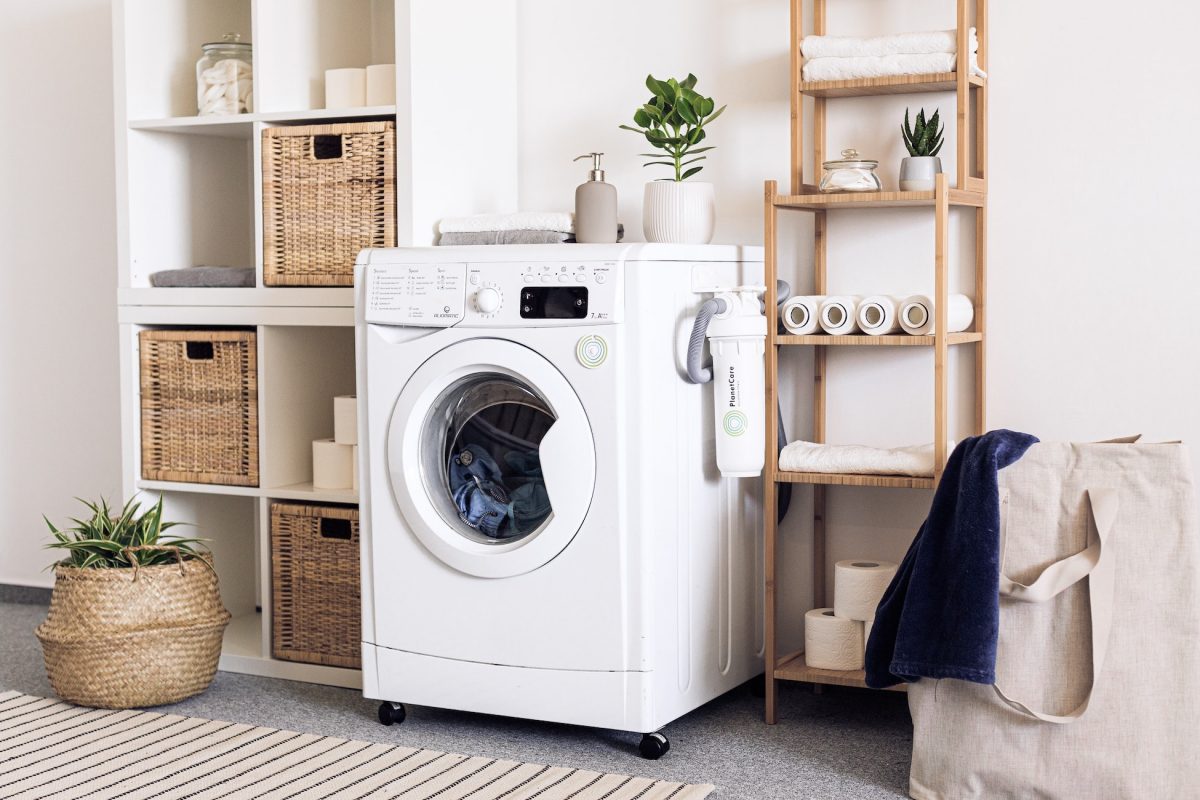If you're like most people, there are a lot of questions about credit cards that you have but don't know who to ask. You're not alone! In this blog post, we will answer all the popular and random questions that people have about credit cards. By the end, you'll know everything from how to get a credit card to how to use it responsibly. Let's get started!
Quick Links to Useful Sections
Credit Card FAQ: Answers to All the Popular and Random Questions Table of Contents
Credit Card FAQ Table of Contents
Can I Use My Credit Card at an ATM?
What's the Best Way to Use a Credit Card?
How Do I Use My Credit Card Responsibly?
Are Credit Cards Good for Your Credit Score?
What's the Difference Between a Credit Card and a Debit Card?
How Do I Choose the Right Credit Card for Me?
What's the Best Way to Use a Credit Card?
What Are the Risks of Using a Credit Card?
What Should I Do If I Can't Pay My Credit Card Bill?
Do Credit Cards Have Annual Fees?
Is There a Limit to How Much I Can Spend on My Credit Card?
What Happens if I Spend More Than My Credit Limit?
What Is a Cash Advance on a Credit Card?
Can Credit Cards Be Used for Direct Debits?
Can Credit Cards Be Use for Gambling?
What's the Difference Between a Debit Card and a Credit Card?
What Happens if I Don't Use My Credit Card?
Can Credit Cards Be in Joint Names?
Can Credit Cards Be In Credit?
What Credit Cards Will Amazon Accepts?
What Happens if I Lose My Credit Card?
What Credit Cards Do Howdens Accept?
What Is the Best Credit Card for Me?
Which Credit Cards Does Costco Accept?
What Happens if I Cancel My Credit Card?
Why Are Credit Cards Better Than Cash?
Why Are Credit Cards Better Than Debit Cards?
Should I Get a Secured or Unsecured Credit Card?
Credit Card FAQ Table of Contents
Can I Use My Credit Card at an ATM?
What's the Best Way to Use a Credit Card?
How Do I Use My Credit Card Responsibly?
Are Credit Cards Good for Your Credit Score?
What's the Difference Between a Credit Card and a Debit Card?
How Do I Choose the Right Credit Card for Me?
What's the Best Way to Use a Credit Card?
What Are the Risks of Using a Credit Card?
What Should I Do If I Can't Pay My Credit Card Bill?
Do Credit Cards Have Annual Fees?
Is There a Limit to How Much I Can Spend on My Credit Card?
What Happens if I Spend More Than My Credit Limit?
What Is a Cash Advance on a Credit Card?
Can Credit Cards Be Used for Direct Debits?
Can Credit Cards Be Use for Gambling?
What's the Difference Between a Debit Card and a Credit Card?
What Happens if I Don't Use My Credit Card?
Can Credit Cards Be in Joint Names?
Can Credit Cards Be In Credit?
What Credit Cards Will Amazon Accepts?
What Happens if I Lose My Credit Card?
What Credit Cards Do Howdens Accept?
What Is the Best Credit Card for Me?
Which Credit Cards Does Costco Accept?
What Happens if I Cancel My Credit Card?
Why Are Credit Cards Better Than Cash?
Why Are Credit Cards Better Than Debit Cards?
Should I Get a Secured or Unsecured Credit Card?
What Is the Average APR on a Credit Card?
What Is the Grace Period on a Credit Card?
Are Credit Cards Contactless?
Contactless credit cards are those that can be used to make payments by simply holding the card near a contactless reader. These types of cards are becoming increasingly popular as they offer a more convenient way to pay than traditional credit cards. Many major credit card issuers now offer contactless options, so it's likely that your credit card is already contactless-enabled. If you're not sure, just look for the contactless symbol on your card.
Can I Use My Credit Card at an ATM?
Yes, you can use your credit card at an ATM in most cases. However, there are a few things to keep in mind before using your credit card at an ATM. First, you'll likely be charged a fee.
Are Credit Cards Waterproof?
No, credit cards are not waterproof. However, there are water-resistant options available. If you're looking for a waterproof credit card, you'll want to look for one that is made of titanium or another durable material.
What's the Best Way to Use a Credit Card?
The best way to use a credit card is to pay your balance in full and on time each month. This will help you avoid interest charges and keep your account in good standing. Additionally, it's important to use your credit card wisely by only charging what you can afford and staying within your credit limit.
Can Credit Cards Be Recycled?
Yes, credit cards can be recycled! In fact, most major credit card issuers have programs in place to recycle old or unused credit cards. If you're not sure how to recycle your credit card, just contact your issuer for more information.
Do Credit Cards Expire?
Yes, credit cards do expire. The expiration date is typically printed on the front of the card and is usually four years from the date of issuance. Once a credit card expires, you can no longer use it to make purchases. However, you may still be able to use.
Are Credit Cards Free?
No, credit cards are not free. There are a number of fees that you may be charged, including annual fees, late payment fees, and cash advance fees. Additionally, you'll also have to pay interest on any balances that you carry.
How Do I Get a Credit Card?
There are a few different ways to get a credit card. The most common way is to apply for one through a credit card issuer. You can also get a credit card by signing up for a new account with a bank or financial institution. Finally, you may be able to get a credit card through a friend or family member who already has one.
How Do I Use My Credit Card Responsibly?
Using your credit card responsibly is important if you want to avoid debt and keep your credit score high. Some tips for using your credit card responsibly include paying your balance in full and on time each month, only charging what you can afford, and staying within your credit limit. Additionally, it's a good idea to review your statements regularly to ensure that there are no fraudulent charges.
Are Credit Cards Bad?
No, credit cards are not bad. In fact, they can be a great tool for building credit and managing your finances. However, it's important to use them responsibly. Some tips for using your credit card responsibly include paying your balance in full and on time each month, only charging what you can afford, and staying within your credit limit. Additionally, it's a good idea to review your statements regularly to ensure that there are no fraudulent charges.
Are Credit Cards Good for Your Credit Score?
Yes, credit cards are good for your credit score. Using your credit card responsibly can help you build a strong credit history, which is important for getting loans and other types of financing in the future. Additionally, having a good credit score can help you get better terms on loans and save money on interest charges.
What's the Difference Between a Credit Card and a Debit Card?
A debit card is linked to your checking account and can be used to withdraw cash or make purchases. A credit card, on the other hand, is a type of loan that must be repaid with interest. Additionally, using a debit card will not help you build your credit history like using a credit card will.
How Do I Choose the Right Credit Card for Me?
There are a few things to consider when choosing the right credit card for you. First, think about what you'll use the card for. If you're looking to build your credit, you'll want a card with no annual fee and a low interest rate. If you're looking to earn rewards, on the other hand, you'll want a card that offers points or cash back on purchases. Additionally, it's important to consider your spending habits and make sure that you choose a card with terms that fit your budget.
What's the Best Way to Use a Credit Card?
The best way to use a credit card is to pay your balance in full and on time each month. This will help you avoid interest charges and keep your credit score high. Additionally, it's a good idea to review your statements regularly to ensure that there are no fraudulent charges.
What Are the Risks of Using a Credit Card?
There are a few risks associated with using a credit card. First, if you don't pay your balance in full and on time each month, you'll be charged interest. Additionally, if you use your credit card to make purchases that you can't afford, you may end up in debt. Finally, if you lose your credit card or have it stolen, someone could use it to make unauthorized charges.
What Should I Do If I Can't Pay My Credit Card Bill?
If you can't pay your credit card bill, the first thing you should do is contact your credit card issuer to explain the situation. They may be able to work with you to create a payment plan or waive late fees. Additionally, it's important to make at least the minimum payment on time each month to avoid damaging your credit score.
Do Credit Cards Have Annual Fees?
Yes, some credit cards have annual fees. However, there are also many cards that don't have annual fees. When choosing a credit card, it's important to consider whether or not the annual fee is worth it based on the features and benefits that the card offers.
Is There a Limit to How Much I Can Spend on My Credit Card?
Yes, most credit cards have spending limits. This limit is usually based on your credit limit, which is the amount of money that the credit card issuer is willing to lend you.
What Happens if I Spend More Than My Credit Limit?
If you spend more than your credit limit, you'll likely be charged a fee. Additionally, your credit score may be negatively affected. Therefore, it's important to stay within your credit limit and only charge what you can afford.
What Is a Cash Advance on a Credit Card?
A cash advance is when you use your credit card to withdraw cash from an ATM or bank. This service typically comes with fees and high interest rates, so it's important to use it responsibly. Additionally, cash advances can damage your credit score if used too frequently.
Are Credit Cards Worth It?
Yes, credit cards are worth it because they can help you build your credit history and earn rewards. However, it's important to use them responsibly by paying your balance in full and on time each month. Additionally, you should review your statements regularly to ensure that there are no fraudulent charges.
Do You Need a Credit Card?
No, you don't need a credit card to live a financial healthy life. However, having a credit card can be helpful in building your credit history and earning rewards. If you do decide to get a credit card, be sure to use it responsibly by paying your balance in full and on time each month. Additionally, review your statements regularly for any fraudulent charges.
Can Credit Cards Get Wet?
No, credit cards cannot get wet. However, if your card gets wet, it's important to dry it off as soon as possible and avoid using it until it is completely dry. Additionally, you should contact your credit card issuer to let them know that your card got wet and to ask if there is anything they can do to help.
Can Credit Cards Be Used for Direct Debits?
The answer to this question is technically yes, but it's not recommended. The reason for this is that credit cards typically have higher interest rates than checking accounts, so you'll end up paying more in the long run. Additionally, if you miss a payment, your credit card company may report it to the credit bureaus, which could negatively impact your credit score.
Can Credit Cards Be Use for Gambling?
Yes, credit cards can be used for gambling, but there are a few things to keep in mind. First, some credit card companies don't allow charges to be made at gambling establishments. Second, even if your credit card company does allow it, you may be subject to cash advance fees. Finally, if you use your credit card to gamble and rack up a lot of debt, it could negatively impact your financial health.
What's the Difference Between a Debit Card and a Credit Card?
A debit card gets its funds from the money you have deposited in your checking or savings account. A credit card loans you a set amount of funds that you will need to pay back with interest. In other words, a debit card is linked to your bank account and can be used to withdraw cash or make purchases. A credit card is a loan that must be repaid with interest.
Can Credit Cards Be Refunded?
The short answer to this question is yes, but there are some conditions that need to be met. First, you'll need to have a valid reason for the refund, such as a defective product or incorrect charges. Second, you'll need to contact your credit card issuer and request a refund. Finally, you may be required to provide documentation supporting your claim.
What Happens if I Don't Use My Credit Card?
If you don't use your credit card, the credit card company may close your account. Additionally, if you have a balance on your credit card when it's closed, you'll still be responsible for repaying that debt. So if you're not using your credit card and don't plan on using it in the future, it's best to contact your credit card company and close the account.
Do Credit Cards Have a Limit?
Yes, credit cards have limits. The limit is the maximum amount of money you're allowed to charge on your credit card in a given day, month, or year. Your credit card limit will be determined by your creditworthiness. If you have good or excellent credit, you'll likely have a higher credit limit than someone with bad or limited credit.
Can Credit Cards Be in Joint Names?
Yes, credit cards can be in joint names. This means that two people are responsible for repaying the debt. Joint accounts can be helpful if one person has bad or limited credit. However, it's important to keep in mind that both people are equally responsible for the debt, so it's important to trust the other person before opening a joint account.
Can Credit Cards Be In Credit?
No, credit cards cannot be in credit. This is because a credit card is a loan that must be repaid with interest. If you have a balance on your credit card, you'll need to make payments until the balance is paid off. Once the balance is paid off, you can close the account or keep it open and use it for future purchases.
What Credit Cards Will Amazon Accepts?
Amazon accepts a wide variety of credit cards, including Visa, Mastercard, American Express, and Discover. Amazon also offers its own store card, which can be used for purchases on Amazon.com.
What Happens if I Lose My Credit Card?
If you lose your credit card, it's important to contact your credit card issuer immediately. They will cancel your old card and send you a new one.
What Credit Cards Do Howdens Accept?
Howdens accept a wide range of credit cards, including Visa, Mastercard, American Express, and Discover. Howdens also offers its own store card, which can be used for purchases in Howdens stores.
What Is the Best Credit Card for Me?
The best credit card for you will depend on your individual financial needs and goals. If you're looking to build your credit, you'll want a card with low interest rates and no annual fee. If you're looking for rewards, you'll want a card that offers cash back or points for every purchase you make. Ultimately, the best credit card is the one that meets your specific financial needs.
Which Credit Cards Does Costco Accept?
Costco accept a wide range of credit cards, including Visa, Mastercard, American Express, and Discover. Costco also offers its own store card, which can be used for purchases in Costco stores.
What Happens if I Cancel My Credit Card?
If you cancel your credit card, the credit card company will close your account and you will no longer be able to use the card. Additionally, if you have a balance on your credit card when it's closed, you'll still be responsible for repaying that debt. So if you're thinking about cancelling your credit card, it's important to consider whether or not you can pay off your balance before doing so.
Why Are Credit Cards Better Than Cash?
Credit cards are better than cash for a number of reasons. First, credit cards offer protection against fraud. If your credit card is stolen, you can report it to the credit card company and they will cancel the card and issue you a new one. Second, credit cards offer rewards and perks that cash does not. Many credit cards offer points or cash back on every purchase you make. Finally, credit cards can help you build your credit score.
Why Are Credit Cards Better Than Debit Cards?
Credit cards are better than debit cards for a number of reasons. First, credit cards offer protection against fraud. If your credit card is stolen, you can report it to the credit card company and they will cancel the card and issue you a new one. Second, credit cards offer rewards and perks that debit cards do not. Many credit cards offer points or cash back on every purchase you make. Finally, credit cards can help you build your credit score.
Are Credit Cards Haram?
No, credit cards are not haram. This is because a credit card is a loan that must be repaid with interest. If you have a balance on your credit card, you'll need to make payments until the balance is paid off. Once the balance is paid off, you can close the account or keep it open and use it for future purchases.
Should I Get a Secured or Unsecured Credit Card?
The type of credit card you should get depends on your individual financial needs and goals. A secured credit card requires a deposit, which acts as collateral for the account. This means that if you default on your payments, the credit card issuer can use your deposit to cover the debt. An unsecured credit card does not require a deposit and is a good option for people with good to excellent credit.
Are Credit Cards Good?
There is no one-size-fits-all answer to this question. Credit cards can be good or bad depending on your individual financial needs and goals. If you're looking to build your credit, a credit card can be a good tool. If you're looking for rewards, a credit card can be a good way to earn points or cash back. However, if you carry a balance on your credit card, you'll accrue interest charges that can add up over time. Ultimately, the decision of whether or not to use a credit card is up to you.
What Is the Average APR on a Credit Card?
The average APR on a credit card is around 15%. However, this number will vary depending on the type of credit card you have. For example, a student credit card may have a lower APR than a standard credit card. Additionally, your APR will also depend on your individual creditworthiness. If you have good to excellent credit, you may be able to qualify for a credit card with a low APR. However, if you have poor or bad credit, you may be stuck with a high APR. Ultimately, the best way to avoid paying interest on your credit card is to pay off your balance in full every month.
What Is the Grace Period on a Credit Card?
The grace period on a credit card is the period of time between when your bill is due and when late fees begin accruing. Most grace periods are 21 days long.
Do you know someone who has hundreds of annoying questions about credit cards? Make sure you share this blog post with them today!













